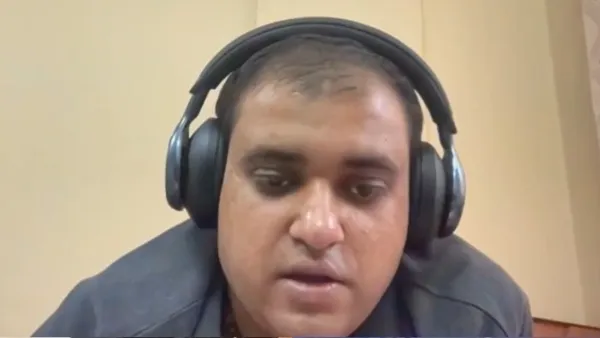A city known for its technological advancements and vibrant culture was shaken by the tragic death of Atul Subhash, a 34-year-old AI engineer, who took his own life under heartbreaking circumstances. Atul’s demise not only highlights the darker side of personal relationships but also raises significant concerns about the misuse of legal processes and systemic biases that can push individuals to the brink.
Atul, a brilliant mind and a dedicated professional, was employed at a leading tech firm in Bengaluru. Friends and colleagues described him as a quiet, diligent, and innovative individual who was passionate about artificial intelligence and machine learning. Outside work, Atul was a devoted husband, or so it seemed. His tragic story unfolded when he left behind a video recording and a suicide note that exposed the turmoil he faced in his personal and legal battles.
The Allegations of Atul Subhash: Misuse of Law and Judicial Bias
In the video and note, Atul narrated a chilling tale of how his wife allegedly used legal provisions to harass and manipulate him. According to Atul, his wife had filed multiple complaints, leveraging laws designed to protect women from abuse. While such laws serve a crucial purpose in safeguarding women’s rights, Atul’s account alleges that they were weaponized against him without basis, leading to severe mental and emotional distress.
“I respected the law. I always believed in justice, but the very system I trusted became a tool to destroy my life,” Atul stated in his video, his voice heavy with despair.
Atul’s plea for justice didn’t stop at the allegations against his wife. He also accused a judge of behaving in an untoward manner during court proceedings. Atul claimed that the judge’s attitude was dismissive and biased, exacerbating his feelings of helplessness. He expressed his frustration, stating that his concerns were ignored and that he felt unheard and powerless against the legal machinery.
The Suicide Note: “Justice Due”
Atul’s suicide note, poignantly titled “Justice Due,” outlined his grievances and demanded accountability from the legal system. It was a desperate cry for reform and fairness. “I do not want my death to be in vain. Let this be a wake-up call for everyone who suffers silently. Justice should not be a privilege but a right,” he wrote.
He also requested that his story be shared widely so that others in similar situations might find the courage to speak out and seek help. The note, written in clear and articulate language, reflected Atul’s analytical mind and his deep anguish over the systemic failures that contributed to his decision.
Community Reaction
The news of Atul’s death sent shockwaves through Bengaluru’s tech community. Social media was flooded with messages of condolence and outrage. Colleagues shared stories of his kindness and work ethic, while friends expressed disbelief that someone so composed and intelligent could be driven to such an extreme step.
“Atul was a gem of a person. It’s heartbreaking to think he endured so much pain silently,” said one of his friends.
Advocacy groups have also seized upon Atul’s story to highlight the need for reforms in laws pertaining to marital disputes. While these laws are critical for protecting vulnerable individuals, activists argue that they should include safeguards to prevent misuse and ensure fairness for all parties involved.
The Legal Dilemma: Striking a Balance
Atul’s case underscores a delicate and complex issue: how to maintain robust legal protections for vulnerable individuals while preventing the misuse of those protections. Laws like Section 498A of the Indian Penal Code and the Domestic Violence Act are invaluable tools for addressing genuine cases of abuse. However, critics argue that there is a growing trend of these laws being used vindictively, leading to devastating consequences for the accused.
Legal experts have called for a more balanced approach. “The judiciary must ensure that every individual gets a fair hearing. Allegations need to be thoroughly investigated before taking punitive action,” said a prominent Bengaluru-based lawyer.
Seeking Justice: What Can Be Done?
As the hashtag #JusticeForAtul trends on social media, the question remains: how can justice be served in this matter? Advocates suggest several steps:
- Comprehensive Investigation: Authorities must conduct an impartial and thorough investigation into Atul’s allegations against his wife and the judicial process. If any wrongdoing is found, appropriate legal actions must follow.
- Judicial Accountability: The judge accused of behaving in an untoward manner must be held accountable if found guilty of bias or misconduct. Judicial transparency is crucial for maintaining trust in the system.
- Legal Reforms: Policymakers must consider amendments to laws governing marital disputes to include safeguards against misuse. This could involve stricter scrutiny of complaints and penalties for filing false allegations.
- Mental Health Support: Greater emphasis on mental health support for individuals facing legal battles is essential. Courts, workplaces, and communities should work together to provide counselling services and emotional support.
- Awareness Campaigns: Public awareness campaigns about the proper use of legal provisions can help prevent their misuse. Educating people about the consequences of false allegations could deter such actions.
A Call for Change
Atul Subhash’s death is a tragic reminder of the emotional and psychological toll that prolonged legal disputes can take on individuals. It also serves as a wake-up call for society to address systemic flaws and ensure that justice is not only done but is seen to be done.
His final words, “Justice Due,” resonate as a powerful call to action. They challenge us to create a system where the law protects the innocent, empowers the vulnerable, and upholds the principles of fairness and equity.
As Bengaluru mourns the loss of a brilliant mind, the responsibility falls on all of us—citizens, policymakers, and the judiciary—to honour Atul’s memory by striving for a more just and compassionate society. Only then can we truly say that his death was not in vain.





